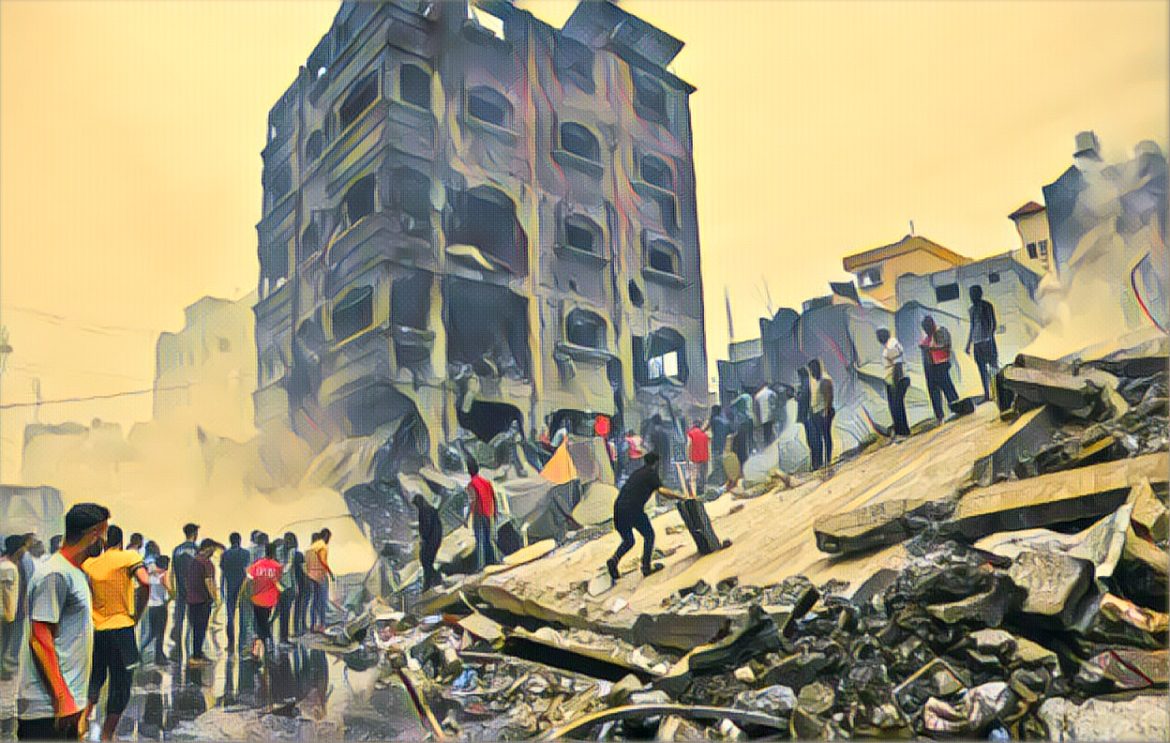Nigeria’s Supreme Council for Shari’ah (SCSN), Christian Association of Nigeria (CAN), and Pentecostal Fellowship of Nigeria (PFN) have not reached a consensus on Nigeria’s role in the ongoing Israel-Hamas conflict. These three prominent organizations hold differing perspectives on the matter.
The Shari’ah Council, represented by its President, Sheikh AbdurRasheed Hadiyyatullah, has called for a comprehensive review of Nigeria’s relations with Israel. They argue that Nigeria should re-evaluate its ties with Israel until Israel respects international law and the rights of Palestinians. Hadiyyatullah expressed grave concerns about what he referred to as ‘genocide’ in Palestine and criticized the international community for its failure to address the root cause of the conflict. He also condemned the United States for its unwavering support for Israel, which, in their view, contributes to the ongoing crisis.
In contrast, CAN and PFN have advocated for Nigeria to maintain neutrality in the conflict and prioritize addressing the humanitarian crisis resulting from the conflict. Archbishop JohnPraise Daniel, National Deputy President of PFN, stressed the importance of Nigeria remaining impartial, as both sides in the conflict are suffering. He emphasized the urgent humanitarian needs, including food, water, and shelter, which require immediate attention. The focus, according to him, should be on ending the violence and alleviating the humanitarian crisis.
The Shari’ah Council’s position is rooted in its condemnation of Israel’s actions and its call for a reevaluation of diplomatic relations with Israel until certain conditions are met. On the other hand, CAN and PFN prioritize humanitarian concerns, advocating for Nigeria to play a neutral role and contribute to alleviating the suffering in the region.
This difference in opinion highlights the complexity of international conflicts and the various perspectives that different groups may hold. It remains to be seen how Nigeria’s government will navigate its role in the Israel-Hamas conflict in light of these divergent views.
In such times, the significance of dialogue and diplomacy cannot be overstated. As Nigeria grapples with these varying stances, it presents an opportunity for constructive discourse among these organizations and the government to determine the most effective and compassionate path forward. Regardless of the differing opinions, a shared commitment to alleviate the suffering and promote peace in the region can serve as a unifying goal.
It’s important to acknowledge that the Israel-Hamas conflict has deep historical and geopolitical roots, making it a particularly intricate issue. The positions taken by these Nigerian organizations reflect the broader global debate about the conflict’s nature and potential resolutions.
In this context, the role of Nigeria can be one of influence in promoting dialogue and peace. While the organizations may have contrasting views, they share a common goal in seeking a resolution that brings an end to the suffering of the people in the region.
Source: [Vanguard]


